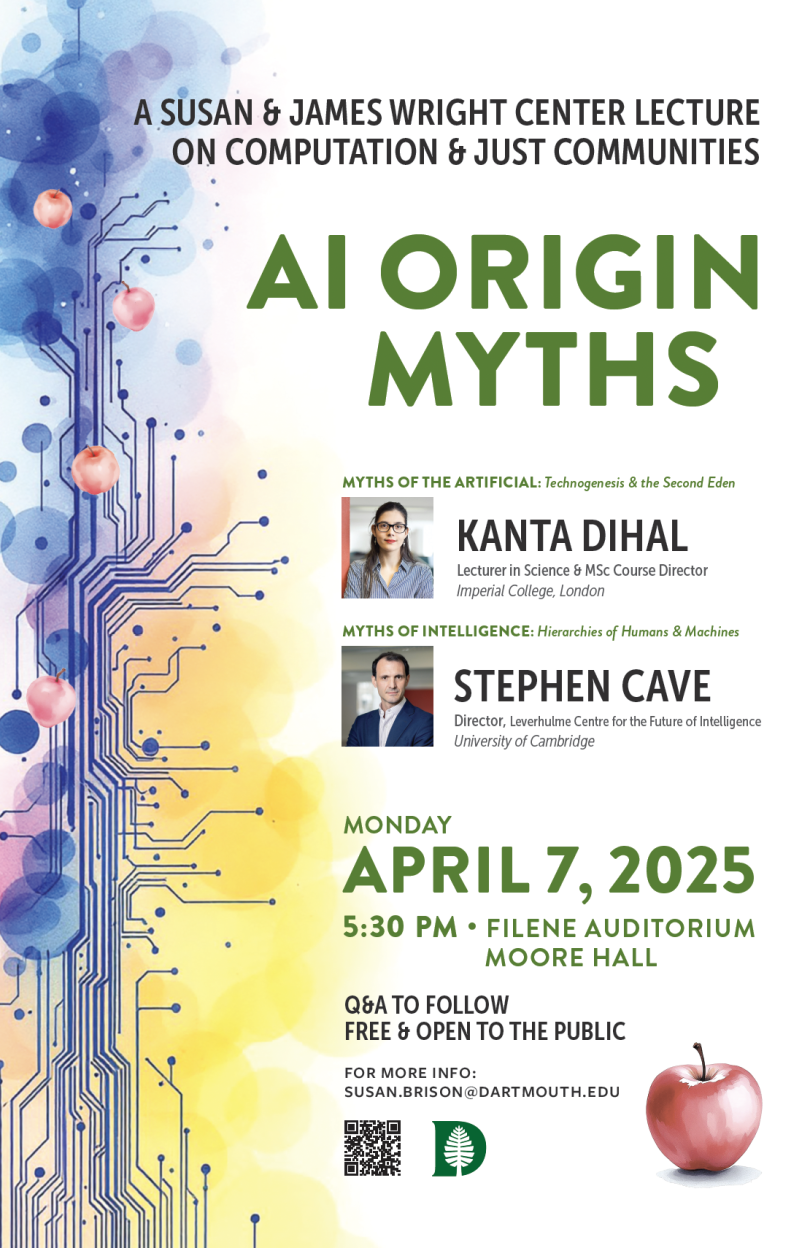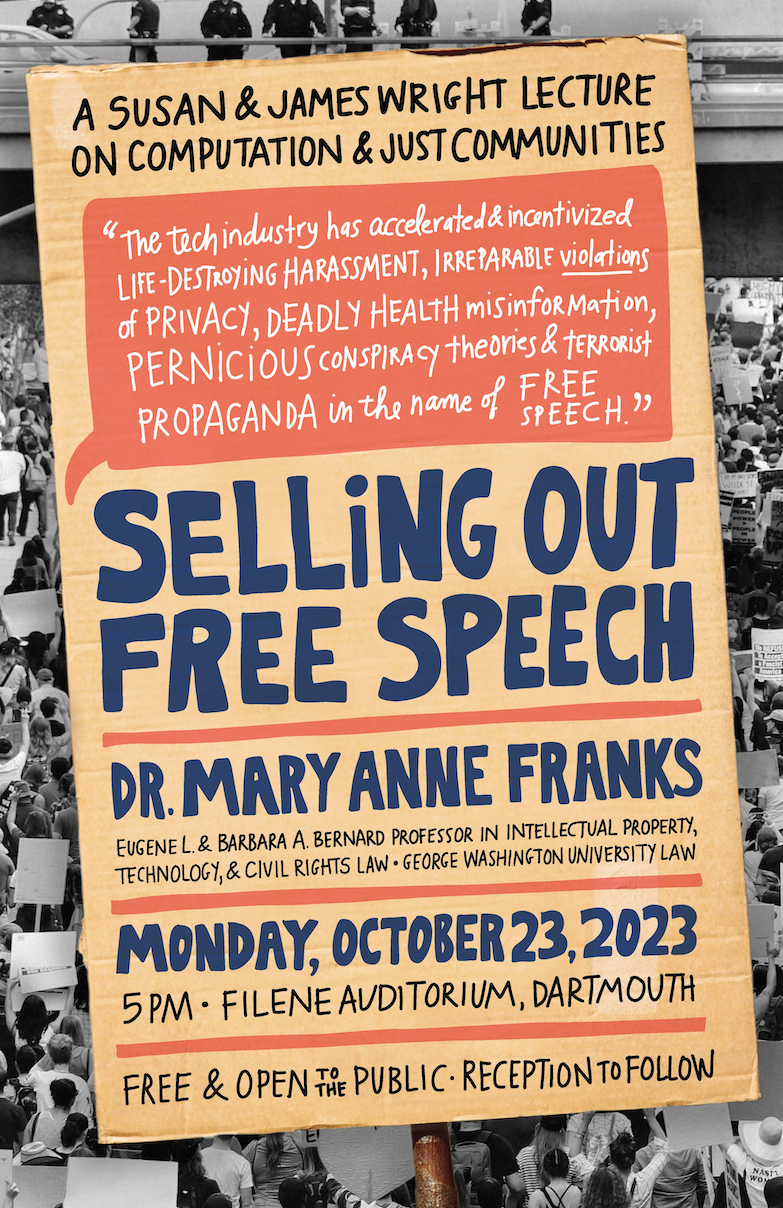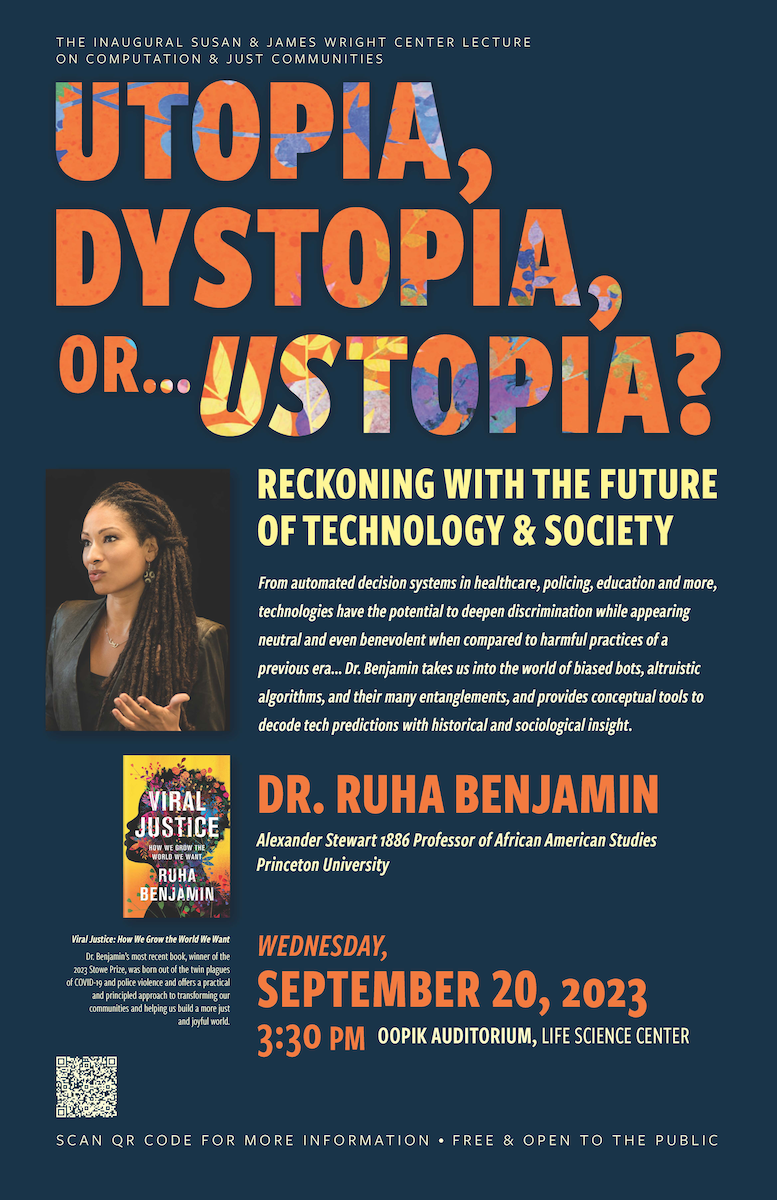Kanta Dihal & Stephen Cave
AI Origin Myths
April 7, 2025, 5:30pm in person at the Filene Auditorium, Moore Hall, Dartmouth College.
OR join us on Dartmouth Youtube virtually
Free and open to the public with Q&A to follow
Abstract and Bio below
Cave and Dihal

Session abstract:
AI is surrounded by a rich mythology that long predates the invention of the technology itself. Stephen Cave and Kanta Dihal will explore two origin myths of AI which continue to shape our hopes and fears for thinking machines today. The first pertains to the artificial, and the dream of using technology to create a paradise on earth. The other concerns intelligence as a singular faculty of ultimate importance.
Talk 1:
Myths of the artificial: technogenesis and the second Eden by Kanta Dihal
Abstract
From the Enlightenment period onwards, the Christian West increasingly began to consider technology as the means to build a new Eden, an artificial paradise. Technological progress came to be seen not only as a way to improve lives, but as a defining characteristic of humanity, a concept called 'technogenesis'. However, this inspired the notion that a lack of technological progress equates to inferiority, a key justification of colonial exploitation. Today, AI is imagined as the key to the new Eden. This talk asks whether it will replicate an ideology of subjugation.
Talk 2:
Myths of intelligence: hierarchies of humans and machines by Stephen Cave
The AI revolution is predicated on the primacy of intelligence: the idea that it is a singular faculty of critical importance to the trajectory of civilization. But, like the idea of technological progress mentioned above, this idea has its origins in the logic of colonialism, and was instrumental in creating racialised, gendered and class-based hierarchies of the human. This short talk explores how this dark history of intelligence shapes the hopes and fears we have for AI.
Bios
Kanta Dihal is Lecturer in Science Communication at Imperial College London, where she is Course Director of the MSc in Science Communication, and currently a Visiting Research Fellow at Google. Her research focuses on science narratives, particularly science fiction, and how they shape public perceptions and scientific development. She is co-editor of the books AI Narratives (2020) and Imagining AI (2023). She holds a DPhil from the University of Oxford on the communication of quantum physics.
Stephen Cave is Director of the Leverhulme Centre for the Future of Intelligence at the University of Cambridge. His research focuses on philosophy and ethics of technology, particularly AI, robotics and life-extension. He is the author of Immortality (Crown, 2012), a New Scientist book of the year, and Should You Choose To Live Forever: A Debate(with John Martin Fischer, Routledge, 2023); and co-editor of AI Narratives (OUP, 2020), Feminist AI (OUP, 2023) and Imagining AI (OUP, 2023).

